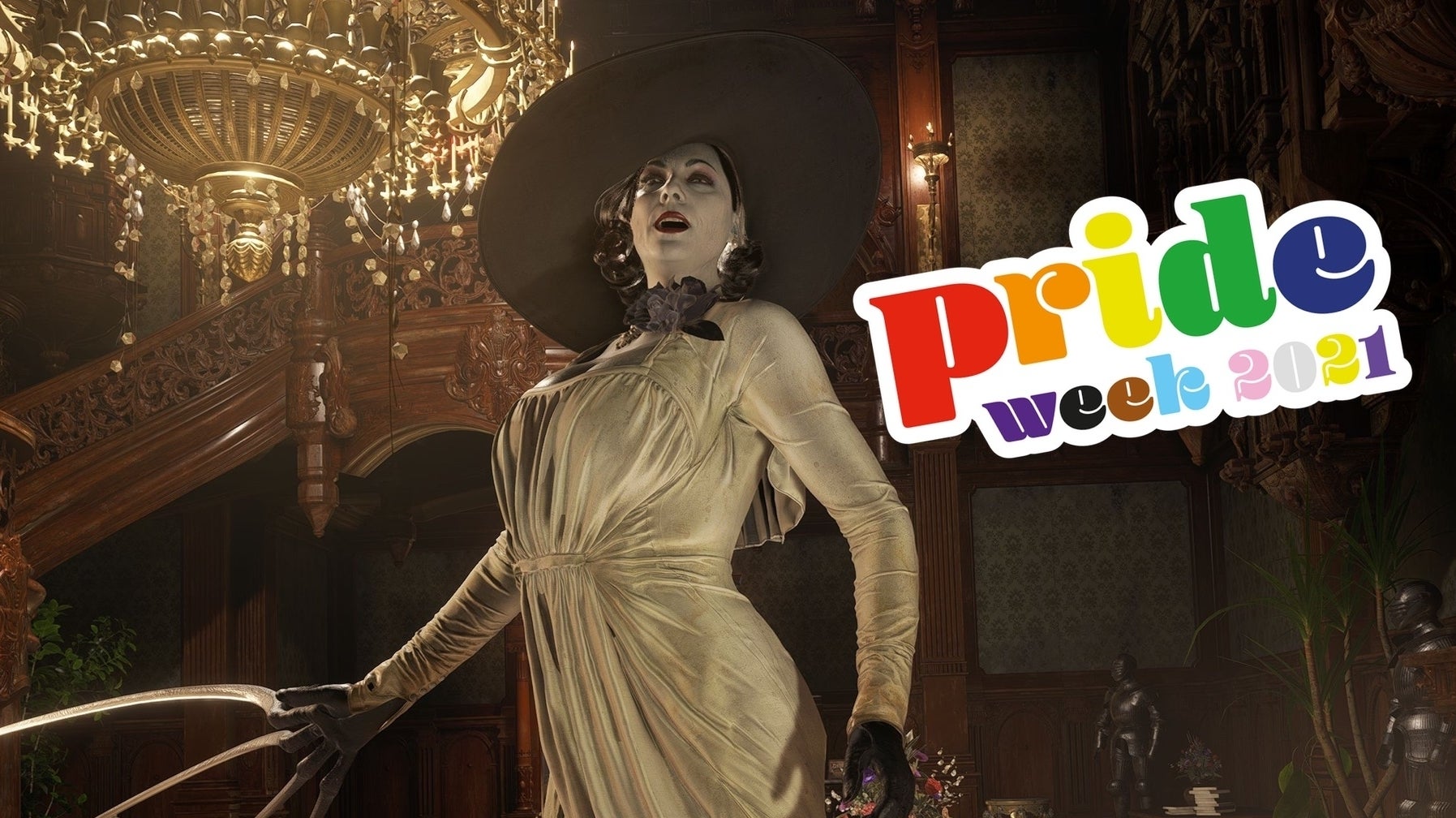Hello! All this week Eurogamer is celebrating Pride with a series of stories examining the confluence of LGBT+ communities and play in its many different forms, from video games and tabletop games through to live-action role-play. Next up, Dr Lloyd (Meadhbh) Houston on a certain Tall Vampire Lady and what they can teach us about the process of disidentification.
To say that the internet collectively lost its mind over all nine feet and six inches of Countess Alcina Dimitrescu would be an understatement almost as colossal as the Lady herself. As a quick glance at DeviantArt, TikTok, and Team Eurogamer’s Let’s Play videos will confirm, from the moment fans first laid eyes on Tall Vampire Lady, their desire to have her pursue them, pin them down, and step on one of the more sensitive parts of their anatomy was virtually irresistible.
Though straight, cis-gender men were far from immune to Lady D’s vampiric charms, it was queer gamers who seemed to take her most enthusiastically to their hearts (and most willingly proffer her their throats). Indeed, in a recent TikTok AMA, Maggie Robertson – the mo-cap performer and voice actor who brought the hulking haemovore to life – aligned House Dimitrescu firmly with the cause of LGBTQIA+ rights with characteristic flair.
While this might seem like an open-and-shut case of lockdown lust finding a convenient outlet, before pre-emptively ruining this Pride Week take-over by consigning the world’s queer gamers to Horny Jail, I want to explore the possibility that there is something deeper at stake in their reaction, something intimately bound-up with the aesthetics and politics of both queerness and the Gothic as genre. In doing so, I want to explore what the fan reaction to characters like Lady Dimitrescu and games like Resident Evil Village more generally can tell us about the ways in which queer people relate and respond to (notionally) cis- and heteronormative media. And, above all, as we face another year of cancelled celebrations, I want to invite all the queer people reading this to take Pride in the thirst that unites us, even as the pandemic keeps us apart.
As a queer person living in a culture where positive representation is hard to come by at the best of times, it is often necessary to read against the grain of a book, film, or game in order to find a character with whom you identify or a narrative to which you relate. In academic circles, this process is called ‘disidentification’, a term coined by queer performance theorist José Esteban Muñoz to account for the ways in which marginalised people borrow, subvert, and play with aspects of the dominant culture from which they are conventionally excluded:
